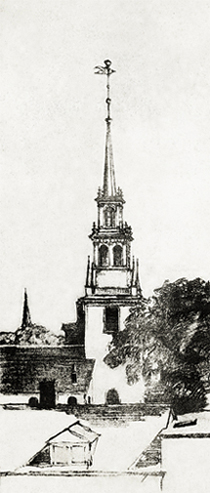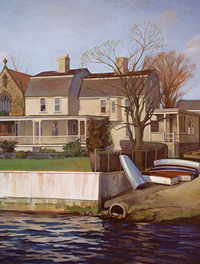Licensed in
RHODE ISLAND & MASSACHUSETTS
Disclaimer:
For help with these or any other legal issues, please call our firm today. The information contained in this website is intended solely for your information. It does not constitute legal advice, and it should not be relied on without a discussion of your specific situation with an attorney.


AREAS OF PRACTICE
 Criminal Defense
Criminal Defense Personal Injury
Personal Injury Environmental Law
Environmental Law Businesses and Corporations
Businesses and Corporations Estate Planning
Estate Planning Wills
Wills Probate
Probate

Probate of Estates
in Massachusetts and Rhode Island
What is Probate?
Probate is the term for the court-supervised procedure where the affairs of a deceased person are handled. When a person dies all property owned by him or her at death which does not pass directly to others through right of survivorship, or through a trust established prior to death, or life insurance payable to a named beneficiary, is subject to the legal proceeding called "probate."
In Rhode Island each town or city has its own probate court with its own probate judges, who are appointed by the town or city council. In the Commonwealth we have a county system of Probate Courts. The location for probate is generally determined by the city or town of residence of the decedent.
"Probating a will" means proving to the probate court that the will was executed by the deceased with all the necessary legal formalities.
Why is probate necessary?
1. To collect, protect and preserve the property of the deceased;
2. To pay all debts, claims, and taxes owed by the estate; and
3. To determine who is entitled to share the estate and to distribute the property accordingly.
What is involved?
A will usually names a personal representative referred to as an executor to manage the estate's assets. If there is no will, then the court will appoint a personal representative called an administrator. The personal representative, usually with the guidance and assistance of a lawyer, is personally responsible for the proper handling and settlement of the estate.
How important is a will?
Experience has proven the wisdom of those who have made a carefully-considered will. By doing so, they have ensured that their property will go where they wish and that those who will be faced with the settlement of the estate can do the job as quickly and with the least amount of emotional turmoil as possible.
One who does not make a will is said to die "intestate," and his or her probate property will be distributed according to the intestate succession law, which is an inflexible statutory formula governing the disposition of one's property.
